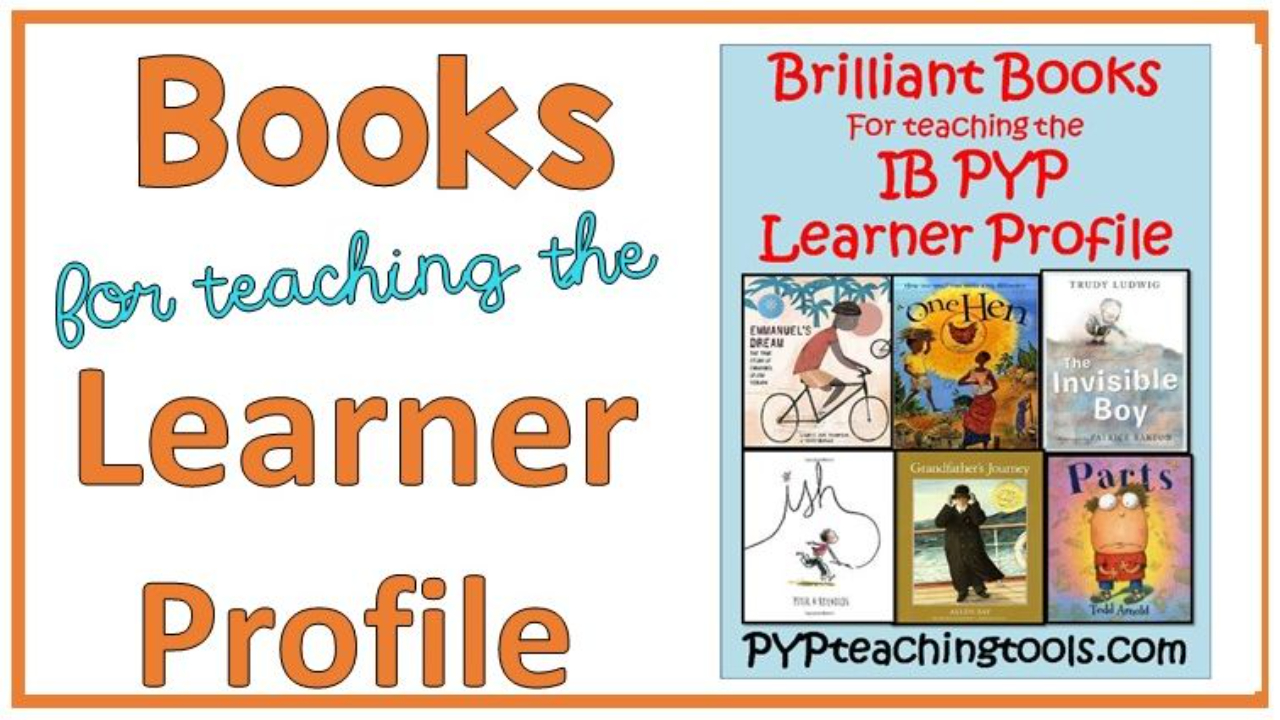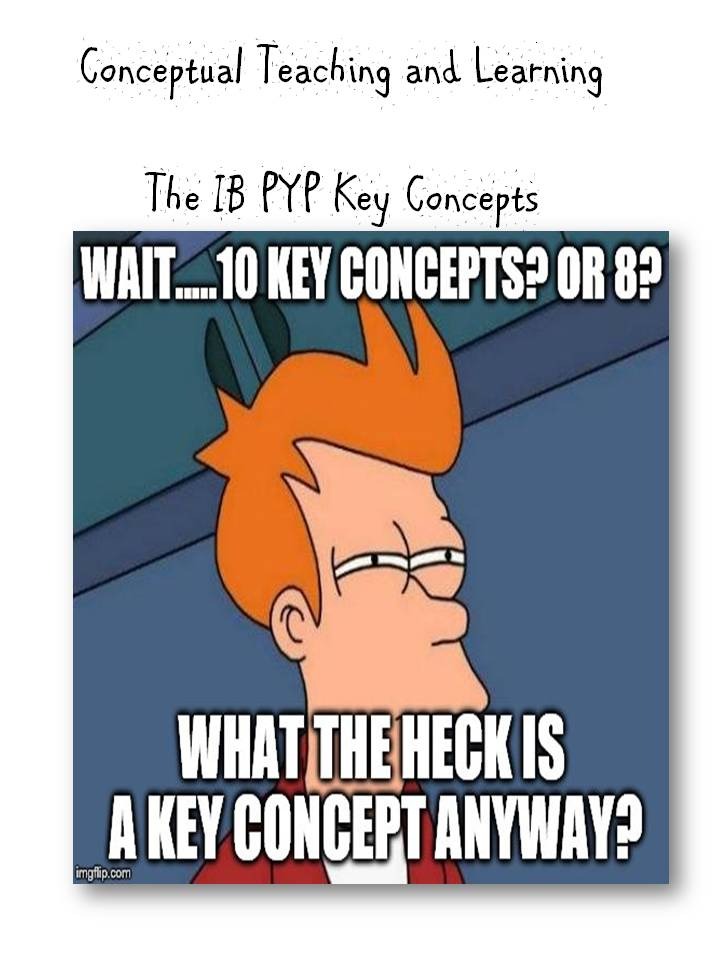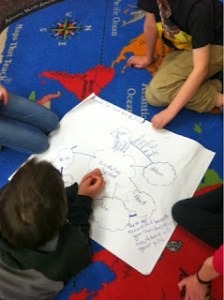Welcome to PYPteachingtools.com
Brilliant Books for Teaching the IB PYP Learner Profile


Books for Teaching the IB PYP Learner Profile
There are so many wonderful books for helping to teach children about the character traits of the IB Learner Profile. Books bring the Learner Profile to life as children learn what these attributes LOOK-SOUND-FEEL-ACT like. Over the years however, I keep returning to a few that I feel reinforce those profile traits really well. I’ve used these books with 3rd grade up to 6th grade equally successfully, even though they may seem to be a wee bit young for those age groups. They work well as quick read alouds and can be utilised to reinforce many reading skills and strategies too: inferring, questioning, synthesising, figurative language and more.
This page is a list of my favourite books for pulling together the Learner Profile traits. I like to use some of them within our units of inquiry or simply as a stand alone exploration when the opportunity presents itself to look more thoroughly at a particular profile trait.
I have grouped them...
IB PYP Communication Skills & Accountable Talk

Empowering Your Classroom with Accountable Talk: A Pathway to Deeper Learning
Have you ever noticed how some classroom discussions just fizzle out, while others spark curiosity and connection? That’s where Accountable Talk steps in, breathing life into conversations and adding oomph to student-driven learning. It’s not just another buzzword—it’s a powerful tool for fostering communication, critical thinking, and collaboration in our IB PYP classrooms. When students take ownership of their words and ideas, they’re not only talking—they’re learning.
Let’s dive into what accountable talk really is, why it’s essential, and how you can seamlessly weave it into your everyday teaching.
What is Accountable Talk, Anyway?
Fundamentally, Accountable Talk is about keeping discussions purposeful, respectful, and learning-focused. It’s conversation that pushes understanding forward, where students are responsible for their words and ideas, holding themselves accountable to their classmates, t...
New to the IB PYP? Essentials for Getting Started with the IB PYP

If you are one of the many, many teachers who will be new or newish to the IB PYP & inquiry-based learning this year, then this is for you. I want you to feel welcome within our community, knowing that this adventure is going to be amazing! Give yourself grace. Take it one step at a time. This article is FULL and links to videos and additional materials. Bookmark it and take notes. Grab a cup of tea and let's do this. Together.😊
I wanted to put out a list of the essentials for every IB PYP classroom, giving even those of you who, like myself, tend to procrastinate all summer long, plenty of time to prepare. Back to school preparations are in high gear for some and dragging for others. I tend to fall into the latter category myself…despite good intentions every single year. You know, last minute cramming moments before the kids walk into the classroom? No matter which camp you fall within, I have that checklist of the essentials for your inquiry-based classroom that will help keep you...
End of the Year Reflection Activities for the IB PYP Classroom

|
Greetings international teachers, from (not so) sunny Scotland. Another school year is almost over and I know those main challenges that we teachers face at the end of the school year.
Well, I have a few ideas for activities that are perfect for the end of the year that I wanted to share with you. These are easy to prepare, easy to implement and easy to keep the kids motivated whilst learning. Even if you arent at that point in your school year, take a look. Im hoping you'll be able to find something that might work for your class. White Board Summer WishesThe picture below is a photo of me with messages from my 3rd grade students. This is a super easy and fun activity for ALL age ... |
Bringing the IB PYP Learner Profile to Life

What kind of a learner are you? Consider the question. Are you more of the lion type of learner or perhaps you're more of the hamster? This is a simple activity that I use at the beginning of the school year, as we are getting to know, not only our class community but also ourselves. As I am building this community of learners, I want them to have a greater understanding of who they are as learners and to recognise and appreciate our diversity. And that, as we know, all stems from the IB Learner Profile. Let's begin with an inquiry into who we are as learners.
 With a simple question and fun images, the children are asked to relate themselves to the pictures. You can choose to use words or simply begin with only the images. This adds to the thinking. I have done it both ways, depending on the students abilities with language, the vocabulary of the PYP and their thinking skills etc. Ask them: Are you more of a lion when it comes to learning, or are you more like the hamsters? Do...
With a simple question and fun images, the children are asked to relate themselves to the pictures. You can choose to use words or simply begin with only the images. This adds to the thinking. I have done it both ways, depending on the students abilities with language, the vocabulary of the PYP and their thinking skills etc. Ask them: Are you more of a lion when it comes to learning, or are you more like the hamsters? Do...
Bringing Student Agency into Assessment in the IB PYP

Student Agency and Inclusive Assessment
Over the years, Ive chatted about inclusive assessment as a practice that needs to become embedded within any student-led, inquiry-based classroom. This message has been spread far and wide that this is a really important part of our daily routine. The IB themselves shifted towards on-going reflection, we have student agency as all the buzz ( and hallelujah for that!), numerous educators within our community are sharing their rationale for the value that inclusive assessment brings and none of this could have come a moment too soon. Yes, its that vital.
If we consider assessment as a key element within education, then we have to reconsider the role our students play within that element.
If you'd like to catch up with my 3 part series of articles, you can link to those here. They cover the form and function of assessment in the inquiry-based classroom, together with strategies for developing inclusive assessment in your classroom. 
Br...
Strategies for Teaching English in IB PYP International Schools

As an international teacher, it is highly likely that you will be teaching English as a second or even third foreign language. In many international schools, we find ourselves with a beautiful broth of multiple languages and cultures within our classrooms. And, we deliver our inquiry-based framework to the children in English. For many others, we are teaching in a host country, to a class full of native speakers from our host country and, again, part of our repertoire is to teach those children to not only speak in English but also to learn in English.
Language therefore becomes more than simply a means of conversation. We are teaching a language, about language and through language and we do all of this with that authentic, inquiry-based approach that we truly believe in. In this article, I will be sharing a recent video from a conversation I had live on Facebook with grade 4 teacher, Maria Vidal. ( @bilingualising on Instagram) [caption id="attachment_2738" align="aligncenter" wi...
Mindfulness in the Classroom – An IB PYP ATL Skill

What is mindfulness exactly? And why would we need mindfulness in the classroom? According to Wikipedia, mindfulness is:
- a mental state achieved by focusing one's awareness on the present moment, while calmly acknowledging and accepting one's feelings, thoughts, and bodily sensations, used as a therapeutic technique.
- the quality of being aware or conscious of something
When I consider those definitions in relation to mindfulness in the IB PYP classroom, the key words that jump out to me are:
being aware, focusing, present, accepting, feelings, thoughts, therapeutic.
Connecting with the Learner Profile
All very similar to being reflective, don't you think? Since we have a whole child approach to teaching, this makes perfect sense that we would help to develop awareness of self as an approach to learning. If we think about how many attributes within the the Learner Profile align with mindfulness, we can then see how, through taking time to explicitly teach mindfulness stra
...Using the IB PYP Key Concepts


What is A Key Concept?
I was asked recent to show a few of our teachers how I incorporate the key concepts into everyday learning. I felt that there may be a few more of you out there who’d also be interested. So, here we go.
The IB PYP now has 7 key concepts that are designed as the lens or the “big picture”of which we look at our lines of inquiry within each of our six units of inquiry. ( 4 units for EYP)
Mindfulness in the Classroom
Mindfulness. It seems to be another of those words that is making the rounds lately. Mindfulness. To me there are so many takes on the word and I feel that it is one of those trends that we do within the IB PYP anyway. I was curious as to how the children perceived this word and so, I asked.
The responses were eye-opening really. Thankfully, many of the kids referred to the IB Attitudes, since we are constantly using this language and philosophy in school. It surrounds them.


